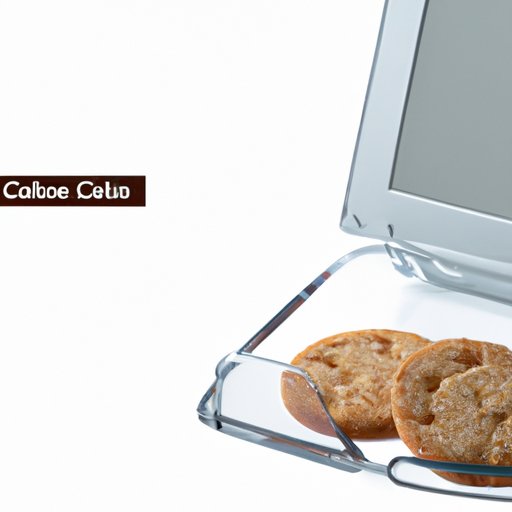
Introduction
Internet browsers use cookies, small text files that store data, to improve user experience and provide customized content. However, cookies can also pose a threat to user privacy and security. This article provides a step-by-step guide on how to clear cookies on a computer and offers practical recommendations to reduce the need to clear cookies.
Step-by-Step Guide
Clearing cookies on a computer is an easy process. The steps may vary slightly depending on the internet browser used, but the following instructions apply to most browsers:
- Open the internet browser.
- Click on the settings gear icon. On some browsers, it may be three dots in the upper right corner of the window.
- Scroll down to the “Privacy and Security” section.
- Click “Clear browsing data.”
- Select the “Cookies and other site data” option.
- Choose the time range. If you want to clear all cookies, select “All time.”
- Click “Clear data.”
It’s important to note that clearing cookies can also remove login information and other saved preferences from websites. It’s recommended to only clear cookies when necessary.
Simple Explanations
Cookies are small text files that store data about the user’s browsing activity. Websites use cookies to remember user preferences, such as login information and language settings. Third-party advertisers also use cookies to gather data about user behavior and target ads accordingly. Clearing cookies removes all of this stored information.
Two types of cookies exist: session cookies and persistent cookies. Session cookies are deleted once the user closes their browser, while persistent cookies remain on the computer until their expiration date or until they are manually deleted.
Visual Aids
Screen-shots or images can make clearing cookies easier to understand. Here is an example below:

Focus on Privacy Concerns
Cookies can be used to track user activity and collect personal information. This information can be sold to advertisers or used for more malicious purposes. Clearing cookies regularly is an important step in protecting user privacy and security.
Recommendations on When to Clear Cookies
While it’s not necessary to clear cookies after every browsing session, regular cookie clearance is beneficial for privacy and security. It’s recommended to clear cookies after using a public computer, such as at an airport or library. Additionally, any time a website notifies the user of a policy or organizational change to the privacy settings, cookie clearance is advised.
Tips for Reducing the Need to Clear Cookies
There are several ways users can limit cookies’ effects on their browsing experience:
- Use “incognito” or “private” browsing mode to avoid saving cookies and other data.
- Use an ad-blocker to limit ad cookies.
- Regularly clear browsing history or cache to avoid an overwhelming number of cookies.
By using safe browsing practices, users can limit the need for Cookie clearance and protect their privacy in the digital space.
Use Examples
For instance, imagine visiting a website tailored to travel deals one time. The site stores a cookie on the computer to remember your interest and show you deals that correlate with your previous searches. However, those deals may become irrelevant over time, but the cookie will remain there, taking up space, and revealing personal information about your last search. Clearing the cookies for this site could be recommendable.
Conclusion
Clearing cookies on a computer is an easy process that should be done regularly to protect user privacy and security. This article provides a step-by-step guide to clear cookies and offers recommendations to reduce the need for cookie clearance. By utilizing visual aids and practical examples, users can understand the importance of clearing cookies and how to do so with confidence.




